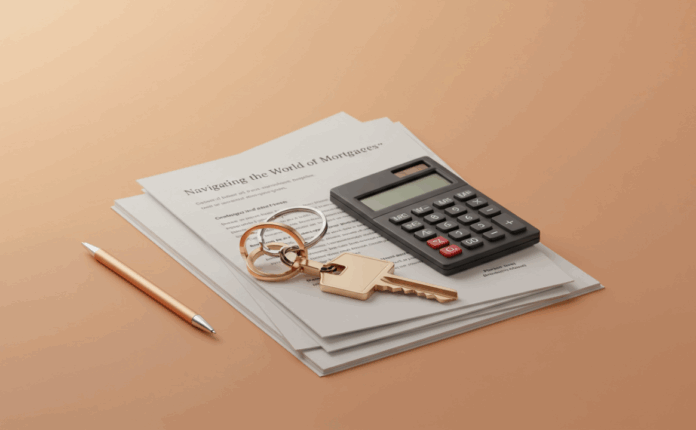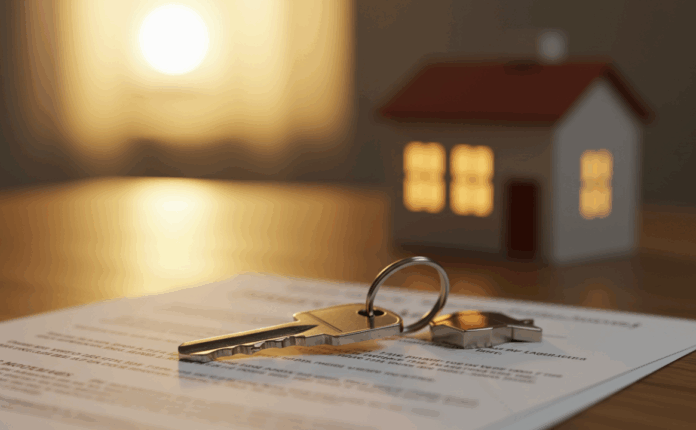Securing a mortgage with poor credit can feel like navigating a maze with no clear exit. A low credit score often signals to lenders that you’re a risky borrower, which can lead to higher interest rates, stricter terms, or outright rejection. However, homeownership isn’t out of reach. With the right strategies, determination, and knowledge, you can improve your chances of getting a mortgage even with a less-than-stellar credit history. This article explores actionable steps, lender options, and practical tips to help you achieve your dream of owning a home, regardless of your credit challenges.
Understanding Poor Credit and Its Impact on Mortgages
What Constitutes Poor Credit?
A credit score below 580 is typically considered “poor” by most lenders, according to the FICO scoring model. This score reflects factors like missed payments, high debt levels, or past bankruptcies. Lenders use this number to gauge your ability to repay a loan. A lower score often results in higher interest rates or limited loan options, as it indicates a higher risk of default. Understanding your credit standing is the first step in addressing the challenges of securing a mortgage.
How Poor Credit Affects Mortgage Approval
Poor credit doesn’t automatically disqualify you from getting a mortgage, but it does make the process more complex. Traditional lenders, such as banks, often prefer borrowers with scores above 620 for conventional loans. With poor credit, you may face higher interest rates, larger down payment requirements, or the need for a co-signer. Some lenders may also require proof of consistent income or a detailed explanation of past credit issues. Knowing these hurdles upfront allows you to prepare effectively.
Strategies to Secure a Mortgage With Poor Credit
Improve Your Credit Score Before Applying
While it may delay your home-buying timeline, improving your credit score can significantly boost your mortgage approval odds. Start by checking your credit report for errors through services like Equifax, Experian, or TransUnion. Dispute any inaccuracies, as even small corrections can improve your score. Pay down high-interest debts, especially credit card balances, to lower your debt-to-income (DTI) ratio. Making consistent, on-time payments for several months can also demonstrate financial responsibility to lenders.
Explore Government-Backed Loan Programs
Government-backed loans are often more lenient toward borrowers with poor credit. The Federal Housing Administration (FHA) offers loans with credit scores as low as 500, provided you can make a 10% down payment. With a score of 580 or higher, the down payment requirement drops to 3.5%. Veterans Affairs (VA) loans and U.S. Department of Agriculture (USDA) loans also have flexible credit requirements, particularly for veterans or buyers in rural areas. These programs are designed to make homeownership accessible, even for those with credit challenges.
Consider Non-Traditional Lenders
If traditional banks turn you away, non-traditional or subprime lenders may be an option. These lenders specialize in working with borrowers who have poor credit, offering loans tailored to higher-risk profiles. However, these loans often come with higher interest rates and fees, so it’s crucial to read the fine print. Compare offers from multiple lenders and ensure the terms align with your long-term financial goals. Online platforms and credit unions can also provide more flexible options than conventional banks.
Save for a Larger Down Payment
A substantial down payment can help offset the perceived risk associated with a low credit score. By putting down 10-20% of the home’s purchase price, you demonstrate financial discipline and reduce the lender’s exposure. Saving for a larger down payment may take time, but it can lead to better loan terms and lower monthly payments. Consider cutting discretionary expenses or setting up a dedicated savings account to build your funds faster.
Work With a Mortgage Broker
A mortgage broker can be a valuable ally when navigating the lending landscape with poor credit. Brokers have access to a vast network of lenders, including those who specialize in subprime mortgages. They can match you with loan programs that suit your financial situation and negotiate terms on your behalf. Be sure to choose a reputable broker with experience in helping borrowers with poor credit, and ask for references or reviews to verify their expertise.
Tips for Strengthening Your Mortgage Application
Provide a Strong Employment History
Lenders value stability so that a consistent employment history can bolster your application. Aim to show at least two years of steady income, preferably from the same employer or industry. If you’re self-employed, provide detailed tax returns and profit-and-loss statements to prove your income reliability. A strong employment record can help offset the negative impact of a low credit score.
Reduce Your Debt-to-Income Ratio
Your DTI ratio, which compares your monthly debt payments to your income, is a critical factor in mortgage approvals. Lenders typically prefer a DTI below 43%. To improve your ratio, focus on paying off high-interest debts, such as credit cards or personal loans, to reduce your overall debt burden. Avoid taking on new debt before applying for a mortgage, as additional obligations can raise your DTI and signal financial strain to lenders.
Write a Letter of Explanation
If your poor credit is due to specific circumstances, such as medical bills or a temporary job loss, a letter of explanation can provide context. Be honest and concise, detailing the cause of your credit issues and the steps you’ve taken to address them. For example, if you’ve completed a debt repayment plan or enrolled in credit counseling, highlight these efforts. This letter can humanize your application and demonstrate to lenders that you’re committed to financial recovery.
Potential Challenges and How to Overcome Them
Higher Interest Rates
Loans for borrowers with poor credit often come with higher interest rates, which increase the overall cost of the mortgage. To mitigate this, shop around for the best rates and consider refinancing once your credit improves. Even a slight reduction in interest can save thousands over the life of the loan. Use online mortgage calculators to compare how different rates affect your monthly payments.
Limited Loan Options

Poor credit may limit you to specific loan types, such as FHA or subprime loans. While these options can help you buy a home, they may have stricter terms, such as mortgage insurance requirements. Research each loan type thoroughly and weigh the pros and cons. For instance, FHA loans require mortgage insurance premiums, but they offer lower down payments, which may suit your budget.
Rejection Risk
Rejections are more common with poor credit, but they’re not the end of the road. If denied, ask the lender for specific reasons and address those issues. For example, if your DTI is too high, focus on paying down debt before reapplying. Persistence and proactive steps can eventually lead to approval.
FAQs About Getting a Mortgage With Poor Credit
Can I get a mortgage with a credit score below 500?
While it’s challenging, some lenders offer mortgages to borrowers with credit scores as low as 500, particularly through FHA loans. However, you’ll likely need a 10% down payment and a strong financial profile in other areas, such as income and employment history.
How long does it take to improve my credit score?
Improving your credit score can take anywhere from a few months to a year, depending on the severity of your credit issues. Consistent payments, debt reduction, and correcting errors on your credit report can lead to noticeable improvements within 6 to 12 months.
Are there mortgages with no credit check?
Some lenders offer “no credit check” mortgages, but these are rare and often come with high interest rates and unfavorable terms. It’s better to focus on improving your credit or exploring government-backed loans for more affordable options.
Should I use a co-signer for my mortgage?
A co-signer with good credit can improve your approval odds, but it’s a significant responsibility for them. If you default on the loan, the co-signer is legally obligated to make payments. Ensure both parties fully understand the risks before proceeding.
How can I find lenders that work with individuals who have poor credit?
Research online lenders, credit unions, and mortgage brokers who specialize in subprime or FHA loans. Reading reviews and comparing offers can help you find reputable lenders with favorable terms and conditions.
By following these strategies and staying proactive, you can navigate the challenges of securing a mortgage with poor credit. With patience and the right approach, homeownership is within reach, even if your credit isn’t perfect.



